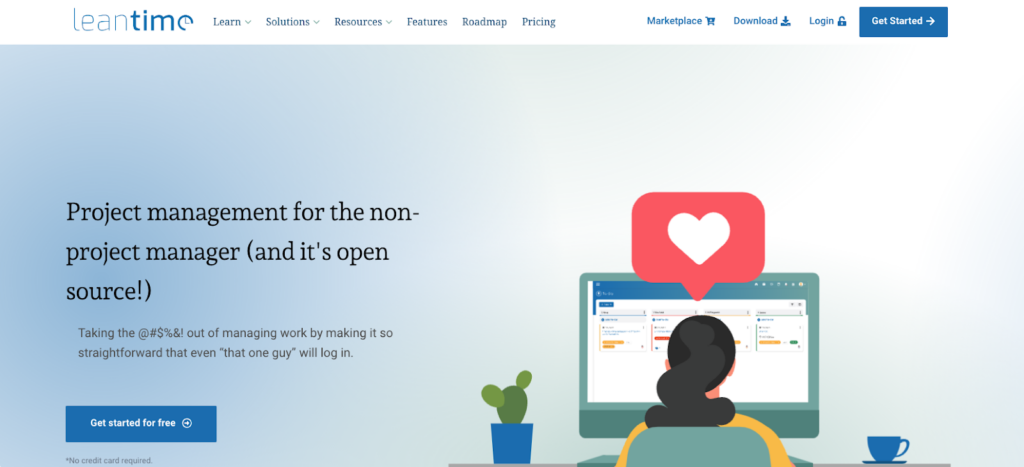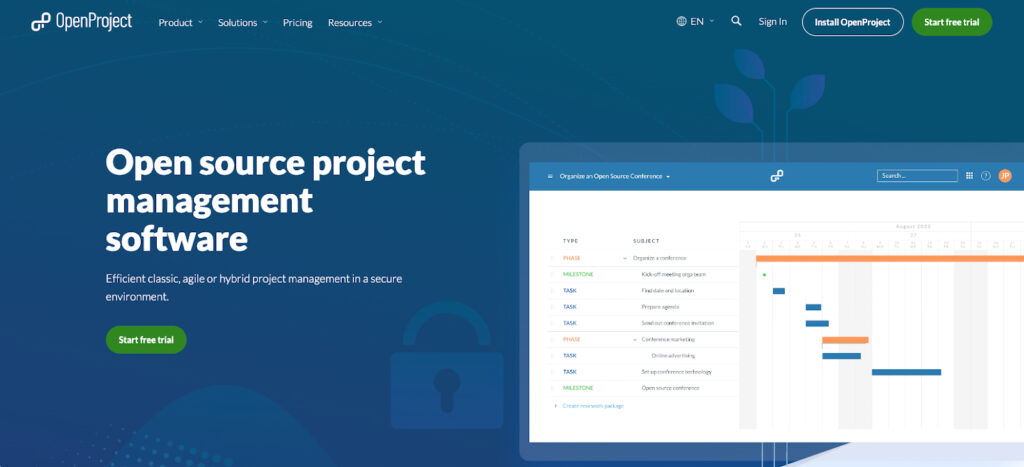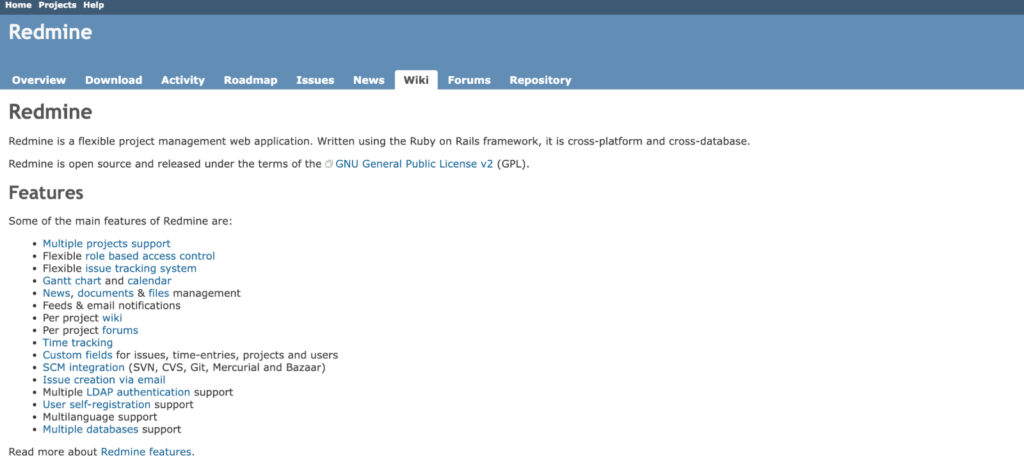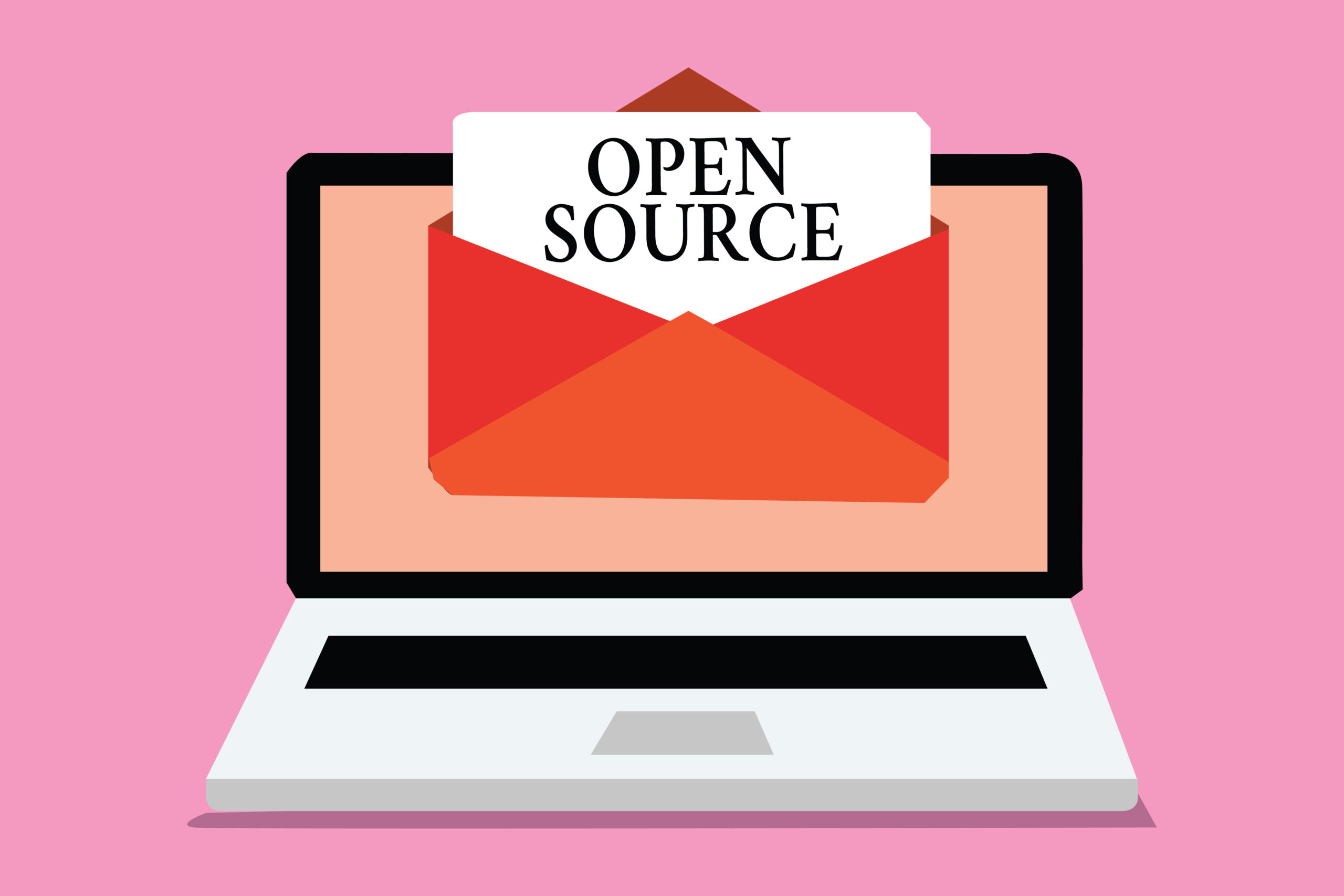Open source project management software is a cost-effective way to manage projects, either self-hosted or at a lower cost than commercial software.
Fast-paced and collaborative work environment of today, project management has become crucial for organizations across various industries. Effective project management ensures streamlined workflows, efficient resource allocation, and successful project outcomes.
Many businesses are turning to open source project management software because of how cost-effective it can be and because of how easily it is to customize.
This article will discuss what it is, the benefits it offers, and some popular open source options you can use. It will also provide some tips to help you get started.
We will also explore the benefits and features of three popular open-source project management tools: Leantime, OpenProject, and Redmine.
Table of contents
What is Open Source Project Management Software?
It refers to software applications that are developed and distributed under an open-source license. Open-source licenses allow users to use, modify, and distribute the software’s source code — often with just the requirement to contribute back to the project. The software can be customized and adapted to meet specific project management needs internally without any restrictions.
Open-source project management software typically provides a range of features and tools to help manage and organize projects.
Project Management Software Includes
- Task Management
- Scheduling
- Resource Allocation
- Collaboration Tools
- Document Sharing
- Reporting
- Project Management Dashboards
- and more
The software is often web-based, allowing teams to access and work on projects from anywhere with an internet connection.
One of the main advantages of open-source project management software is its flexibility and adaptability. Additionally, the open-source nature encourages collaboration and contributions from a global community, leading to continuous improvement and innovation of the software.
It can be a cost-effective solution, eliminating the need for expensive commercial licenses. It also provides transparency, as the source code is available for review, ensuring security and data privacy. However, it’s important to note that while open-source software is often free to self host, there may be costs as some providers may offer additional paid offerings or support plans.
Benefits of Open Source Project Management Software
Unlock your projects’ efficiency and success with project management tools as they provide plenty of benefits, including the following:
Cost-effectiveness
It’s free to use, which significantly reduces software expenses for organizations, particularly small businesses and startups.
Customizability
It allows organizations to tailor the software to their specific needs by modifying the source code. This flexibility enables businesses to create a project management solution that aligns perfectly with their workflows. It is also often modular, so users can add or remove modules to customize features according to business requirements.
Community Support
Projects often have active and dedicated communities that provide support, bug fixes, and regular updates. This ensures that the software stays current and secure, with improvements and new features powered by a community of contributors.
Transparency and Security
Organizations have full visibility into the source code, ensuring transparency and reducing the risk of hidden vulnerabilities or backdoors. Additionally, the collaborative nature of open source projects encourages continuous security audits and prompt resolution of any identified issues.
Integration and Extensibility
Project management tools integrate smoothly with other software development tools, such as version control systems, issue trackers, and collaboration platforms. This allows teams to create a cohesive ecosystem of tools that work together to enhance productivity and streamline workflows.
Scalability
It’s designed to accommodate projects of varying sizes and complexities. Open source tools can scale to meet your evolving needs without significant financial implications whether you’re managing a small team or a large-scale enterprise project.
Community-driven Innovation
They thrive on innovation and collaboration. The software continually evolves by leveraging the collective knowledge and expertise of the community. New features can be more easily introduced along with integrations and best practices that cater to the changing needs of project teams.
Popular Open Source Project Management Software
Leantime

More: Download Leantime, a free project management software.
It focuses on simplicity and efficiency, offering a user-friendly interface and intuitive features. Leantime provides a clean project management dashboard that provides an overview of project progress, milestones, and upcoming tasks.
The Kanban board functionality in Leantime allows teams to visualize their workflows and manage tasks using a visual board. This feature is particularly useful for teams practicing agile methodologies or following a lean approach to project management. With the Kanban board, team members can easily track the status of tasks and identify potential bottlenecks.
Along with the Kanban board, Leantime incorporates additional task views; focusing on the ways that the human brain organizes information.
Read More: The Top Digital Planner Built with ADHD Brains in Mind
Leantime also includes project time tracking capabilities, enabling organizations to monitor project hours and analyze resource utilization. It additionally incorporates project scheduling software features, allowing teams to create project timelines and set deadlines for tasks. This helps in keeping the project on track and ensuring timely completion.
Leantime stands out among project management and commercial systems because it has prioritized the best practices of project management, made it useable without PMP certifications, and remained industry agnostic.
OpenProject

OpenProject is a feature-rich open source project management software that emphasizes collaboration, leaning more towards agile project management. It provides a project management dashboard that allows teams to plan, track, and collaborate on projects. One of its primary features is its ability to integrate traditional project management methodologies with agile practices; making it suitable for a wide range of projects incorporating agile practices.
With OpenProject, teams can create tasks, assign them to team members, and track progress in real time. The software also offers an issue tracking software, enabling teams to identify and resolve project roadblocks. OpenProject also provides Gantt charts and project timelines, helping project managers visualize project schedules and project dependencies.
OpenProject supports collaborative project management through its built-in communication tools. Team members can discuss project-related matters, share files, and provide feedback directly within the platform.
Redmine

Redmine is an engineer-focused open source project management software. It provides a comprehensive suite of tools to help teams collaborate on projects and track progress. It also offers a customizable dashboard, which allows users to access the information they need quickly. Additionally, it provides features such as issue tracking, time tracking, and Gantt charts.
One of the notable features of Redmine is its plugin ecosystem; allowing users to enhance the software’s functionality according to their specific requirements. From time tracking plugins to issue tracking enhancements, Redmine offers a wide array of extensions that cater to different project management needs.
Redmine also integrates well with other software development tools, such as version control systems like Git and Subversion.
Choosing the Right Open Source Project Management Software
While OpenProject, Redmine, and Leantime are excellent choices, selecting the right software ultimately depends on your specific requirements and preferences. Here are a few factors to consider when making your decision:
Project Complexity
Evaluate the complexity of your projects and determine whether the project management open source software supports the necessary features and methodologies. Consider aspects such as task management, issue tracking, time tracking, collaboration tools, and reporting capabilities.
User Interface and Ease of Use
The user interface should be intuitive and user-friendly, enabling team members to quickly adapt to the software and navigate through its features effortlessly.
Integration Options
Assess the software’s integration capabilities and ensure compatibility with your existing tools and workflows. Look for options to connect with your organization’s version control systems, communication platforms, and other essential software.
Community Support and Documentation
Check the availability of community support, active forums, and documentation. A strong community presence ensures timely assistance and a wealth of resources to implement and use the software successfully.
Long-term Maintenance and Updates
Evaluate the software’s maintenance strategy, frequency of updates, and responsiveness to security vulnerabilities. Selecting a project management tool that receives regular updates and actively addresses issues is important to guarantee a reliable and secure platform.
Conclusion
This software provides a compelling alternative to proprietary solutions, offering organizations cost-effective and flexible collaborative tools for effective project management. OpenProject, Redmine, and Leantime are just a few examples of the diverse range of software available.
When choosing the right software for your organization, carefully consider the features, scalability, integration options, and community support offered by each tool. By selecting the most suitable project management tool, you can streamline your workflows, enhance collaboration, track project progress, and ultimately achieve successful project outcomes.
Embrace the power of open source and take advantage of these unique project management software options to elevate your project management practices and drive your organization toward greater efficiency and success.



